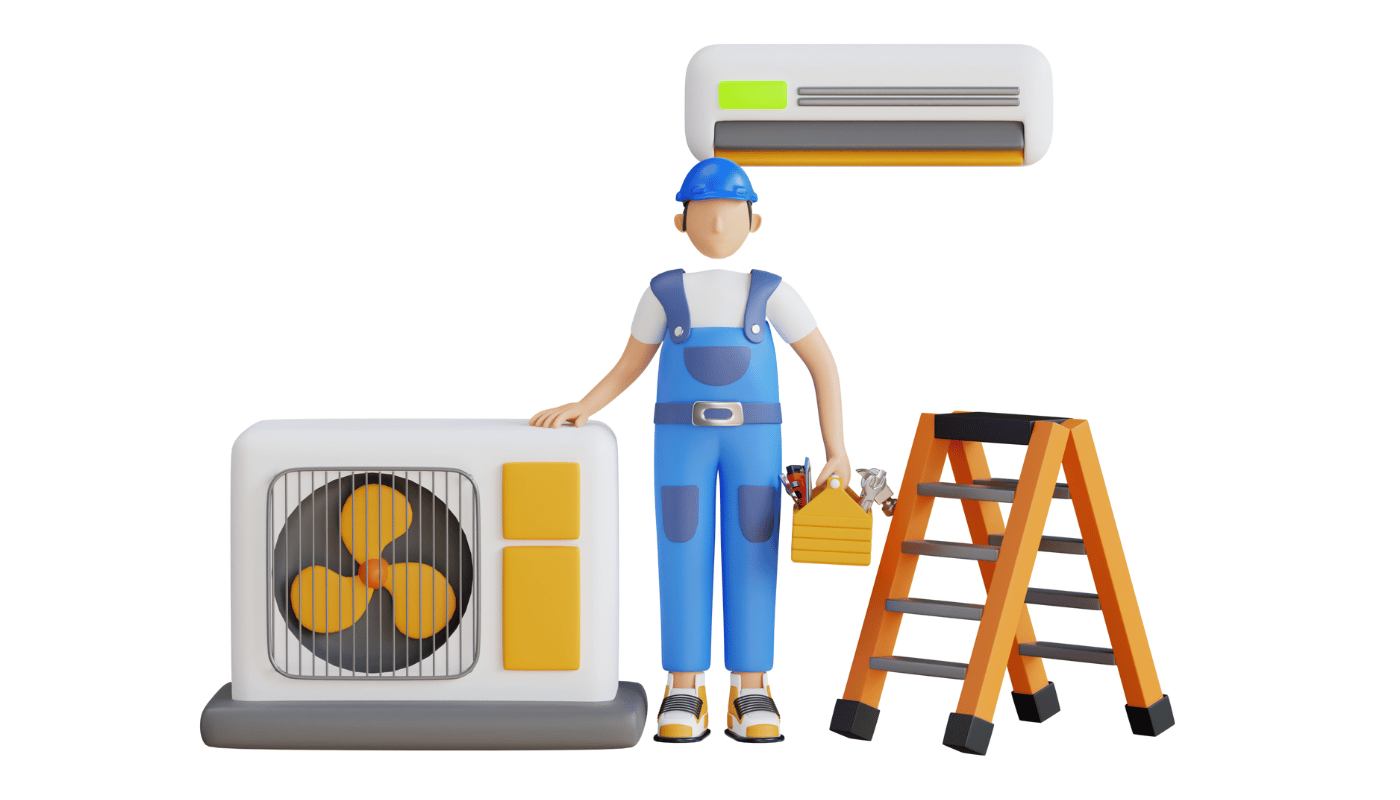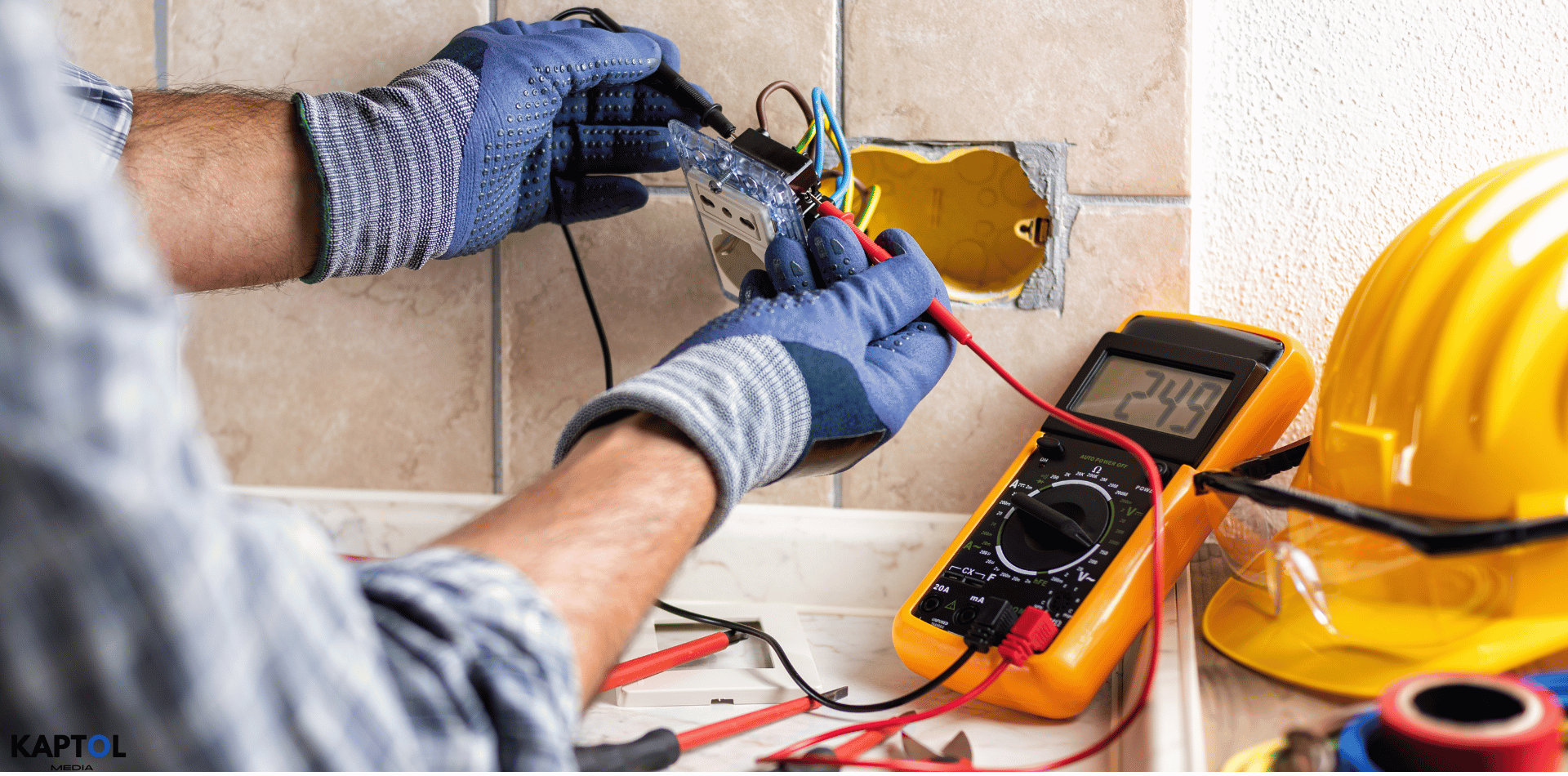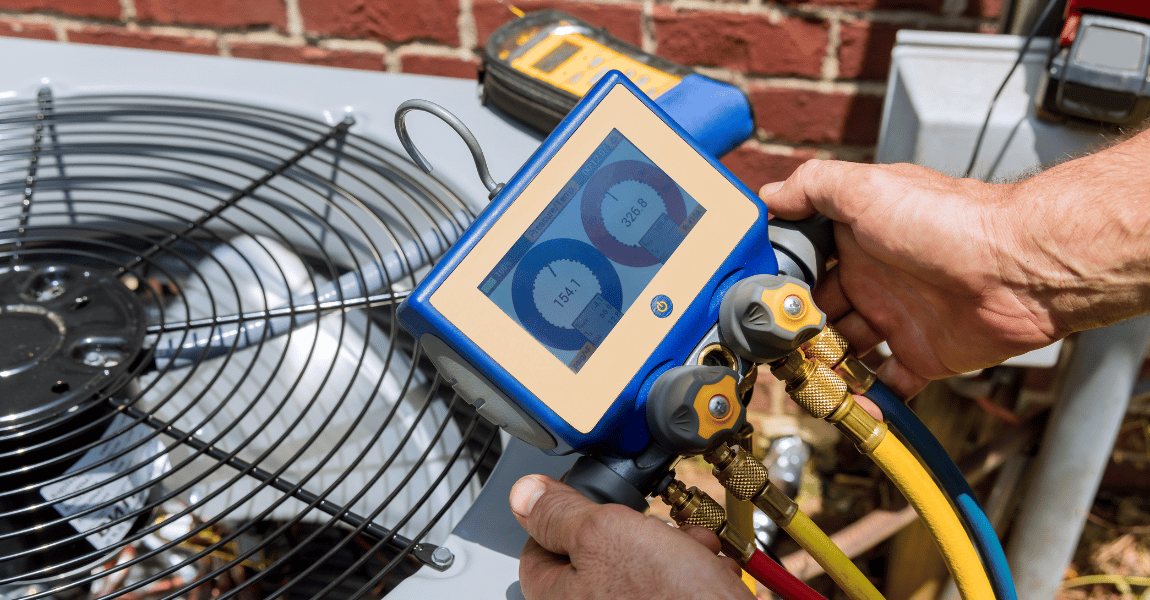Why You Should Engage a Licensed Electrician
Why You Should Engage a Licensed Electrician and Not Do Your Electrical Work Yourself

In an era where DIY (Do It Yourself) projects are all the rage, the temptation to tackle household tasks, including electrical work, can be strong.
After all, with a plethora of online tutorials and guides, what could go wrong?
However, when it comes to electrical work, the stakes are incredibly high, and the potential for serious consequences far outweighs the perceived benefits.
Here are compelling reasons why you should always engage a licensed electrician instead of attempting to handle electrical work yourself.
Safety First
Risk of Electrical Shock and Fire:
Electrical work is inherently dangerous. A single mistake can lead to electric shocks, which can cause severe injuries or even be fatal. Additionally, improper wiring or faulty installations can result in electrical fires, endangering your home and loved ones. Licensed electricians are trained to handle these risks safely and effectively.
The Dangers of Electric Shock
Electric shock occurs when a person comes into contact with an electrical energy source. The shock can cause a range of injuries, from mild tingling sensations to severe burns or even death. The severity of the shock depends on several factors, including the voltage, the current flow, the duration of contact, and the path the current takes through the body.
1. Immediate Physical Harm:
When electric current passes through the body, it can cause immediate harm, including:
- Burns: Electric shocks can cause burns at the point of contact, which can be superficial or severe, requiring medical treatment.
- Heart Arrhythmias: The heart can be affected by electric current, potentially causing arrhythmias or cardiac arrest, which can be fatal if not treated promptly.
- Muscle and Nerve Damage: Electric shock can lead to involuntary muscle contractions, nerve damage, and even paralysis.
2. Long-Term Health Effects:
Survivors of electric shocks can experience long-term health issues such as:
- Chronic Pain: Nerve damage from electric shock can result in chronic pain and discomfort.
- Neurological Problems: Cognitive and neurological issues can arise, affecting memory, concentration, and motor skills.
- Psychological Impact: The trauma of experiencing a severe electric shock can lead to anxiety, depression, and post-traumatic stress disorder (PTSD).
The Risk of Electrical Fires
Electrical fires are another significant risk associated with improper electrical work. These fires can start when wiring or electrical components overheat, short-circuit, or fail.
1. Causes of Electrical Fires:
- Overloaded Circuits: Plugging too many appliances into one outlet or circuit can cause overheating and fires.
- Faulty Wiring: Improperly installed or damaged wiring can lead to short circuits, sparks, and fires.
- Incorrectly Rated Components: Using components that are not rated for the electrical load they carry can cause them to overheat and ignite.
2. Impact of Electrical Fires:
- Property Damage: Electrical fires can cause extensive damage to your home, destroying belongings and structural elements.
- Injury and Loss of Life: Fires can result in injuries from burns or smoke inhalation and, tragically, loss of life.
Why Licensed Electricians Are Essential
Given these risks, it is clear why hiring a licensed electrician is crucial for any electrical work. Licensed electricians have the training, experience, and tools necessary to perform electrical work safely and effectively.
1. Comprehensive Training:
Licensed electricians undergo rigorous training, including classroom instruction and hands-on experience. They learn how to handle electrical systems safely, understand electrical codes and standards, and are trained to anticipate and mitigate risks.
2. Knowledge of Electrical Codes:
Electrical codes and standards are in place to ensure safety and functionality. Licensed electricians are well-versed in these codes and ensure that all work complies with them, reducing the risk of electrical shocks and fires.
3. Proper Tools and Equipment:
Licensed electricians use specialised tools and equipment designed for safety and efficiency. These tools allow them to work on electrical systems without compromising safety, something that typical household tools cannot provide.
4. Professional Accountability:
Licensed electricians are accountable for their work. They carry liability insurance, which protects you in case of any mishaps. Their professional reputation depends on performing work to the highest safety standards.
The risks of electric shock and electrical fires are too significant to ignore.
Attempting to perform electrical work without the necessary expertise can have dire consequences. By engaging a licensed electrician, you protect yourself, your home, and your loved ones from these dangers. Licensed electricians bring the necessary training, knowledge, and professionalism to ensure that electrical work is performed safely and effectively, providing peace of mind and safeguarding your property.
Code Compliance: Ensuring Safety and Proper Functionality
Electrical work must comply with local building codes and standards.
These codes are in place to ensure safety and proper functionality. Licensed electricians are familiar with these regulations and ensure that all work meets the required standards. DIY electrical work often falls short of these codes, leading to safety hazards and potential legal issues.
Understanding Electrical Codes and Standards
Electrical codes and standards are established by various governing bodies to ensure the safe installation, operation, and maintenance of electrical systems.
Local areas may also have additional regulations that electricians must follow.
1. Purpose of Electrical Codes:
- Safety: The foremost purpose of electrical codes is to protect individuals from electrical hazards such as shocks, fires, and explosions.
- Consistency: Codes provide a uniform set of guidelines that ensure electrical systems are installed consistently and safely.
- Functionality: Properly installed electrical systems are more likely to function reliably and efficiently, preventing disruptions and potential hazards.
2. Key Aspects of Electrical Codes:
- Wiring Methods: Codes specify the types of wiring methods that can be used in different situations, ensuring that they are appropriate for the environment and load they will carry.
- Grounding and Bonding: Proper grounding and bonding are crucial for safety, and codes provide detailed requirements to prevent electric shock and fire hazards.
- Circuit Protection: Codes mandate the use of circuit breakers and fuses to protect against overcurrent and short circuits.
- Installation Practices: Specific installation practices, such as the spacing of outlets and the routing of cables, are defined to minimise risks and ensure functionality.
The Importance of Code Compliance
Ensuring that electrical work complies with local codes and standards is vital for several reasons.
1. Safety Assurance:
Compliance with electrical codes is essential for safety. Non-compliant installations can pose significant risks, including electric shocks, fires, and other hazards. Licensed electricians are trained to adhere to these codes, ensuring that every aspect of the electrical system is safe.
2. Legal Requirements:
Electrical codes are not just recommendations; they are legal requirements. Performing electrical work without adhering to these codes can result in fines, penalties, and legal liabilities. Licensed electricians are aware of these legal requirements and ensure that all work meets the necessary standards.
3. Inspection and Approval:
Electrical work often requires inspection and approval from local authorities. These inspections ensure that the work complies with all relevant codes and is safe to use. Licensed electricians can navigate the permit and inspection process efficiently, ensuring that your project passes all necessary checks.
The Risks of DIY Electrical Work
DIY electrical work, while tempting, often falls short of the stringent requirements set by electrical codes. This can lead to several serious issues.
1. Safety Hazards:
Without a thorough understanding of electrical codes, DIYers are likely to make mistakes that compromise safety. Improper wiring, inadequate grounding, and incorrect use of materials can all lead to dangerous situations, including electric shocks and fires.
2. Increased Liability:
Performing electrical work without the necessary permits and inspections can void your home insurance coverage. In the event of an electrical fire or other incident, you may be held personally liable for damages and injuries, resulting in significant financial and legal consequences.
3. Costly Corrections:
Non-compliant electrical work often needs to be corrected by a licensed professional. This can be more expensive than having the work done correctly in the first place, as it may involve undoing and redoing the entire installation.
The Role of Licensed Electricians
Licensed electricians play a crucial role in ensuring that electrical work is code-compliant, safe, and reliable.
1. Expertise and Training:
Licensed electricians undergo extensive training to understand and apply electrical codes. They keep up-to-date with changes in the codes and industry best practices through continuous education.
2. Detailed Knowledge:
Licensed electricians have detailed knowledge of both national and local electrical codes. They know how to apply these codes to different types of installations and scenarios, ensuring that every aspect of the work is compliant.
3. Professional Accountability:
Licensed electricians are accountable for their work. They provide warranties and guarantees that the work will meet all necessary codes and standards. If any issues arise, they are responsible for making the necessary corrections.
Code compliance is a critical aspect of any electrical work.
It ensures safety, reliability, and legal compliance. Licensed electricians possess the knowledge, training, and experience to ensure that all electrical work meets the stringent requirements of local and national codes. By engaging a licensed electrician, you protect yourself from safety hazards, legal liabilities, and potential financial burdens, ensuring that your electrical systems are safe, efficient, and up to code.

Expertise and Experience
Knowledge and Skill: The Hallmarks of Licensed Electricians
Licensed electricians undergo extensive training and certification processes.
They possess a deep understanding of electrical systems and are equipped to diagnose and resolve complex electrical issues. This expertise is something that even the most enthusiastic DIYer cannot match.
The Path to Becoming a Licensed Electrician
The journey to becoming a licensed electrician involves rigorous training, education, and hands-on experience. This process ensures that electricians are well-prepared to handle the complexities and dangers associated with electrical work.
1. Formal Education:
Many electricians begin their careers by completing a formal education program at a technical school. These programs cover essential topics such as electrical theory, blueprint reading, safety practices, and the National Electrical Code (NEC). The curriculum provides a strong foundation in the principles and practices of electrical work.
2. Apprenticeship:
After completing their formal education, aspiring electricians typically enter an apprenticeship program. Apprenticeships are a combination of on-the-job training and classroom instruction. Under the supervision of experienced electricians, apprentices gain practical experience in installing, maintaining, and repairing electrical systems. This hands-on training is crucial for developing the skills needed to work independently.
3. Certification and Licensing:
To become a licensed electrician, individuals must pass a certification exam that tests their knowledge of electrical systems, codes, and safety practices. Licensing requirements vary by state and locality, but they generally include a combination of education, apprenticeship, and successful completion of the exam. Licensed electricians must also adhere to continuing education requirements to stay current with changes in the industry and code updates.
Deep Understanding of Electrical Systems
Licensed electricians possess a deep understanding of electrical systems that extends beyond basic wiring and installation.
This knowledge is critical for ensuring safety, efficiency, and reliability in electrical work.
1. Electrical Theory and Principles:
Electricians are well-versed in electrical theory, including the principles of voltage, current, resistance, and power. They understand how these principles interact within electrical systems and how to apply them in practical situations. This theoretical knowledge is the foundation for diagnosing and resolving electrical issues.
2. System Design and Planning:
Licensed electricians have the expertise to design and plan electrical systems for various applications, from residential homes to large commercial buildings. They can determine the appropriate load requirements, select suitable materials, and create detailed wiring diagrams. This planning ensures that electrical systems are safe, efficient, and capable of meeting the needs of the occupants.
3. Diagnostic Skills:
Electrical issues are often complex and require a systematic approach to diagnose. Licensed electricians have the skills to troubleshoot and identify problems within electrical systems. They use specialised tools and techniques to locate faults, assess damage, and determine the best course of action for repairs.
Handling Complex Electrical Issues
The ability to handle complex electrical issues sets licensed electricians apart from DIY enthusiasts. Their training and experience equip them to tackle a wide range of challenges that arise in electrical work.
1. Upgrading Electrical Systems:
Modern homes and businesses often require upgrades to their electrical systems to accommodate new technologies and increased power demands. Licensed electricians can assess existing systems, recommend upgrades, and perform the necessary work to ensure that electrical systems are safe and up-to-date.
2. Emergency Repairs:
Electrical emergencies, such as power outages, short circuits, and electrical fires, require immediate attention and expertise. Licensed electricians are trained to respond quickly and effectively to emergencies, minimising damage and restoring power safely.
3. Specialised Installations:
Certain electrical installations, such as solar panels, backup generators, and smart home systems, require specialised knowledge and skills. Licensed electricians are trained to install and configure these systems, ensuring that they operate correctly and integrate seamlessly with existing electrical systems.
The Limitations of DIY Electrical Work
While DIY electrical projects can be rewarding, they come with significant limitations, especially when compared to the expertise of licensed electricians.
1. Limited Knowledge and Experience:
DIY enthusiasts typically lack the formal education and hands-on experience that licensed electricians possess. This limitation can lead to mistakes, safety hazards, and substandard work.
2. Inadequate Tools and Equipment:
Professional electricians use specialised tools and equipment designed for electrical work. DIYers often do not have access to these tools, making it difficult to perform tasks safely and efficiently.
3. Code Compliance Challenges:
Electrical codes and standards are complex and constantly evolving. Licensed electricians stay current with these changes through continuing education. DIYers may not be aware of the latest code requirements, leading to non-compliant installations that can pose safety risks and legal issues.
The knowledge and skill of licensed electricians are indispensable when it comes to electrical work. Their extensive training, deep understanding of electrical systems, and ability to handle complex issues ensure that electrical installations and repairs are performed safely, efficiently, and in compliance with codes and standards. While DIY projects can be fulfilling, they cannot match the expertise and professionalism of licensed electricians. Engaging a licensed electrician is a wise investment that protects your home, your loved ones, and your peace of mind.











